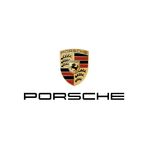Volkswagen's Bold Moves Amid Tariff Turbulence
June 1, 2025, 11:38 am
Volkswagen is steering into the storm. The German automotive giant is signaling massive investments in the United States, a move that could reshape its future in a volatile market. CEO Oliver Blume recently described tariff discussions with the U.S. government as "fair" and "constructive." This optimism comes as the company navigates the choppy waters of trade policy and economic uncertainty.
The backdrop is complex. The U.S. market is a critical arena for Volkswagen, yet it has been fraught with challenges. The Trump administration's import tariffs have cast a long shadow over foreign automakers. Many companies have hesitated to commit significant resources, fearing the unpredictable nature of U.S. trade policy. Yet, Volkswagen is ready to gamble on growth.
Blume’s comments reflect a cautious optimism. He emphasizes the importance of dialogue with U.S. officials, particularly with Commerce Secretary Howard Lutnick. This relationship could be pivotal. Volkswagen is not just looking to weather the storm; it aims to thrive within it. The company already employs over 20,000 people directly in the U.S. and supports another 55,000 jobs indirectly. This footprint gives it leverage in negotiations.
Investment is the name of the game. Volkswagen has earmarked $5.8 billion for Rivian, an electric vehicle company. This partnership signals a commitment to innovation and sustainability. The automotive landscape is shifting, and Volkswagen is positioning itself at the forefront of this change. Blume has made it clear: more investments are on the horizon. This is not just about survival; it’s about seizing opportunities.
However, the path is fraught with uncertainty. A recent survey by Germany's Machinery and Equipment Manufacturers Association revealed that nearly three-quarters of participants felt that uncertainty over U.S. trade policy severely impacted their competitiveness. This sentiment resonates deeply within the automotive sector. The fear of tariffs has caused delays in purchasing decisions, creating a ripple effect throughout the industry.
Uncertainty can be more damaging than the tariffs themselves. It breeds hesitation. Companies hesitate to invest, to expand, to innovate. This is a dangerous game. Volkswagen’s strategy hinges on turning this uncertainty into opportunity. By investing heavily in the U.S., it aims to demonstrate its commitment to the market, hoping to influence tariff discussions favorably.
The stakes are high. The 25% tariff on auto imports remains a significant hurdle. While some tariffs have been blocked by a U.S. trade court, the appeals process is ongoing. This legal tug-of-war adds another layer of complexity. Volkswagen is not alone in this struggle. Other German automakers are also in talks with Washington, seeking to leverage their investments to soften the blow of tariffs.
Blume's vision is clear: he wants a comprehensive deal that benefits all industries. The automotive sector is a linchpin in the U.S. economy, and its health is crucial for broader economic stability. A quick resolution to tariff discussions could unlock significant growth potential for Volkswagen and its competitors.
But what does this mean for the average consumer? It could mean more choices and better prices. If tariffs are reduced, the cost of imported vehicles may decrease, benefiting American buyers. Additionally, increased investment could lead to more jobs and innovation in the automotive sector. This is a win-win scenario.
Yet, the road ahead is not without obstacles. The complexity of international trade requires agility and foresight. Companies must navigate a labyrinth of regulations and market dynamics. Volkswagen’s strategy must be adaptable, ready to pivot as conditions change. This is where strong leadership comes into play.
Blume’s leadership style reflects a blend of vision and pragmatism. He understands that success in the automotive industry requires more than just financial investment. It demands a commitment to quality, customer satisfaction, and operational excellence. This is a delicate balancing act. Innovation must be pursued without sacrificing the core values that define the brand.
As Volkswagen moves forward, it must also keep an eye on the broader economic landscape. The global economy is interconnected, and shifts in one region can have far-reaching effects. The company’s ability to adapt to changing trade policies and consumer preferences will be crucial.
In conclusion, Volkswagen is at a crossroads. The company is poised to make significant investments in the U.S., signaling its commitment to growth despite the challenges posed by tariffs and trade uncertainty. CEO Oliver Blume’s optimistic outlook reflects a strategic vision that prioritizes dialogue and investment. As the automotive industry evolves, Volkswagen aims to be a leader, navigating the complexities of international trade with agility and foresight. The future is uncertain, but with bold moves and a clear strategy, Volkswagen is ready to drive into it.
The backdrop is complex. The U.S. market is a critical arena for Volkswagen, yet it has been fraught with challenges. The Trump administration's import tariffs have cast a long shadow over foreign automakers. Many companies have hesitated to commit significant resources, fearing the unpredictable nature of U.S. trade policy. Yet, Volkswagen is ready to gamble on growth.
Blume’s comments reflect a cautious optimism. He emphasizes the importance of dialogue with U.S. officials, particularly with Commerce Secretary Howard Lutnick. This relationship could be pivotal. Volkswagen is not just looking to weather the storm; it aims to thrive within it. The company already employs over 20,000 people directly in the U.S. and supports another 55,000 jobs indirectly. This footprint gives it leverage in negotiations.
Investment is the name of the game. Volkswagen has earmarked $5.8 billion for Rivian, an electric vehicle company. This partnership signals a commitment to innovation and sustainability. The automotive landscape is shifting, and Volkswagen is positioning itself at the forefront of this change. Blume has made it clear: more investments are on the horizon. This is not just about survival; it’s about seizing opportunities.
However, the path is fraught with uncertainty. A recent survey by Germany's Machinery and Equipment Manufacturers Association revealed that nearly three-quarters of participants felt that uncertainty over U.S. trade policy severely impacted their competitiveness. This sentiment resonates deeply within the automotive sector. The fear of tariffs has caused delays in purchasing decisions, creating a ripple effect throughout the industry.
Uncertainty can be more damaging than the tariffs themselves. It breeds hesitation. Companies hesitate to invest, to expand, to innovate. This is a dangerous game. Volkswagen’s strategy hinges on turning this uncertainty into opportunity. By investing heavily in the U.S., it aims to demonstrate its commitment to the market, hoping to influence tariff discussions favorably.
The stakes are high. The 25% tariff on auto imports remains a significant hurdle. While some tariffs have been blocked by a U.S. trade court, the appeals process is ongoing. This legal tug-of-war adds another layer of complexity. Volkswagen is not alone in this struggle. Other German automakers are also in talks with Washington, seeking to leverage their investments to soften the blow of tariffs.
Blume's vision is clear: he wants a comprehensive deal that benefits all industries. The automotive sector is a linchpin in the U.S. economy, and its health is crucial for broader economic stability. A quick resolution to tariff discussions could unlock significant growth potential for Volkswagen and its competitors.
But what does this mean for the average consumer? It could mean more choices and better prices. If tariffs are reduced, the cost of imported vehicles may decrease, benefiting American buyers. Additionally, increased investment could lead to more jobs and innovation in the automotive sector. This is a win-win scenario.
Yet, the road ahead is not without obstacles. The complexity of international trade requires agility and foresight. Companies must navigate a labyrinth of regulations and market dynamics. Volkswagen’s strategy must be adaptable, ready to pivot as conditions change. This is where strong leadership comes into play.
Blume’s leadership style reflects a blend of vision and pragmatism. He understands that success in the automotive industry requires more than just financial investment. It demands a commitment to quality, customer satisfaction, and operational excellence. This is a delicate balancing act. Innovation must be pursued without sacrificing the core values that define the brand.
As Volkswagen moves forward, it must also keep an eye on the broader economic landscape. The global economy is interconnected, and shifts in one region can have far-reaching effects. The company’s ability to adapt to changing trade policies and consumer preferences will be crucial.
In conclusion, Volkswagen is at a crossroads. The company is poised to make significant investments in the U.S., signaling its commitment to growth despite the challenges posed by tariffs and trade uncertainty. CEO Oliver Blume’s optimistic outlook reflects a strategic vision that prioritizes dialogue and investment. As the automotive industry evolves, Volkswagen aims to be a leader, navigating the complexities of international trade with agility and foresight. The future is uncertain, but with bold moves and a clear strategy, Volkswagen is ready to drive into it.

